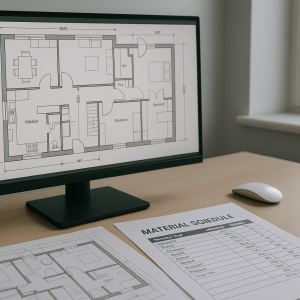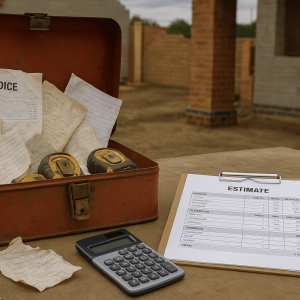Embarking on a construction project without a solid grasp of the costs involved is like setting sail without a compass. This is where the expertise of a construction estimator becomes invaluable. These professionals are the navigators of the construction world, guiding projects through the financial seas to ensure they reach the shores of success without drifting off budget. This guide will walk you through the essence of construction estimation in the UK, highlighting the tools you’ll need, the skills to hone, and some insider tips to enhance your estimating prowess.
Demystifying Construction Estimation
At the heart of every construction project lies the estimator – a pivotal figure tasked with dissecting plans and pinpointing the precise amount of time, resources, and money required to bring a project to life. They delve into project plans and specifications with a fine-tooth comb, calculating everything from the number of bricks needed to the last nail.
Who Are Estimators, Anyway?
Imagine estimators as the masterminds of cost prediction. They’re not just about crunching numbers; they’re strategic players in the construction game. These savvy professionals consider every angle, from market trends to material availability, ensuring no stone is left unturned in their quest to outline a project’s financial blueprint.
Working hand-in-glove with architects, engineers, and project managers, estimators ensure every estimate aligns with the project’s vision, scrutinizing every detail to forecast any hurdles that might inflate costs or delay timelines.
The Vital Role of Estimators in Project Management
The estimator’s role in project management cannot be overstated. They lay the financial groundwork, enabling builders to plan with confidence. Through meticulous cost estimation, they pave the way for smart decision-making, ensuring projects are both feasible and financially sound.
By identifying cost-saving opportunities and suggesting efficient alternatives, estimators don’t just save money; they contribute to the project’s overall success, ensuring it’s delivered on time, within budget, and to the highest standards.
Toolkit and Traits for Top-Notch Estimation
Becoming a master estimator involves a blend of cutting-edge tools and sharp skills. Let’s dive into what you’ll need to excel in this role.
Essential Estimation Software
Gone are the days of manual calculations. Today’s estimators rely on sophisticated software to breeze through estimates. Tools like Buildsoft, ConEst, and PlanSwift are game-changers, offering everything from detailed cost breakdowns to integration with project management platforms, all designed to enhance accuracy and efficiency.
Must-Have Skills for the Modern Estimator
Beyond software, estimators need a rich tapestry of skills:
- Technical Know-How: A solid foundation in construction methods and costs is non-negotiable. Keeping abreast of industry developments ensures estimations are spot-on.
- Keen Eye for Detail: The devil’s in the details, and a meticulous approach ensures nothing slips through the cracks.
- Analytical Acumen: Breaking down complex data and making sense of blueprints and calculations is all in a day’s work for estimators.
- Stellar Communication: Clear, concise communication with project stakeholders is key to aligning visions and ironing out any kinks in the estimation process.
Crafting an Estimator: A Step-by-Step Guide
1. Defining the Project Scope
Kick things off by getting crystal clear on what the project entails. This means deep dives into plans, specifications, and stakeholder discussions to ensure you’ve got a full view of what’s ahead.
2. Dissecting the Project into Bite-Sized Tasks
Next up, break the project down into manageable tasks. This not only simplifies the estimation process but also ensures you accurately allocate resources for each phase.
3. Allocating Time and Resources
With your tasks outlined, it’s time to assign the necessary materials, labor, and equipment. Drawing on your expertise and industry standards, you’ll piece together a detailed resource puzzle for each task.
4. Tallying Up the Total Cost
Now, with all the pieces in place, you can calculate the project’s overall price tag. Remember to factor in contingencies for those unexpected twists and turns that construction projects invariably face.
Avoiding Common Estimation Pitfalls
- Underestimating Task Complexity: Always assume that tasks might hold more complexity than they first appear. This cautious approach ensures you’re prepared for any scenario.
- Forgetting to Plan for Delays: Construction is full of surprises. Factor in potential delays to keep your project on track.
Sharpening Your Estimation Skills
- Embrace Continuous Learning: The world of construction is ever-evolving. Staying informed and adapting your estimates accordingly is key to accuracy.
- Leverage Historical Data: Past projects are a goldmine of insights. Use them to refine your estimates and enhance future project planning.
Estimators are the unsung heroes of the construction industry. Their skillful predictions and strategic foresight are indispensable in navigating the complex terrain of building projects. By mastering the art of estimation, you not only ensure your projects stay financially grounded but also pave the way for their successful completion.
Looking to demystify your project’s costs? Dive into Cost Estimator’s comprehensive service. Tailored specifically for the UK construction sector, our advanced tools and deep industry knowledge ensure your estimates are as robust as your build. Upload your plans today and embark on a journey to financial clarity and project success with Cost Estimator at your helm.











